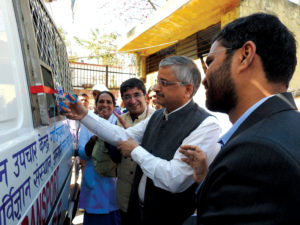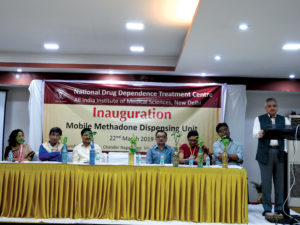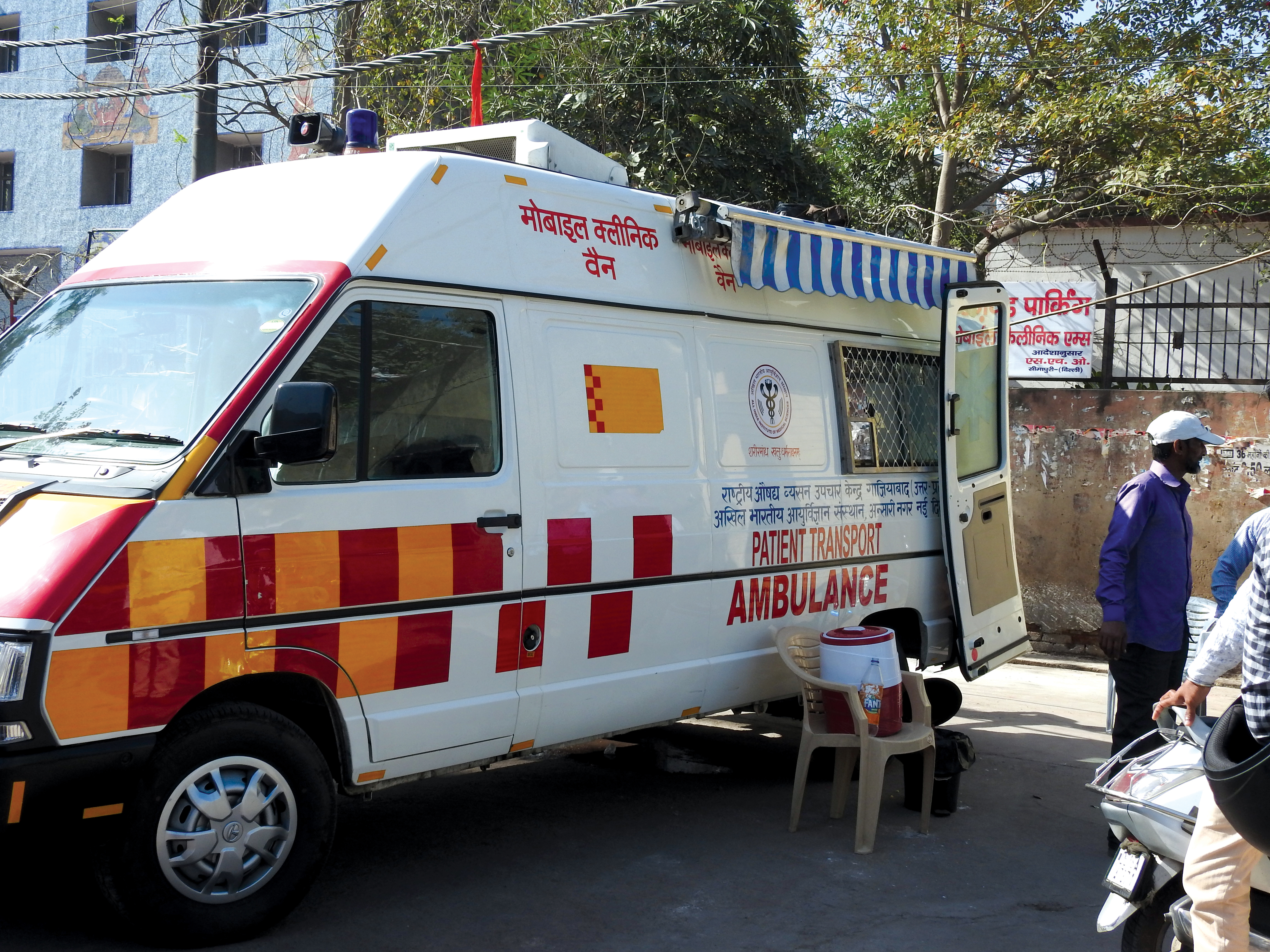First of its kind in India, this van endeavours to keep substance abuse off the streets of Delhi, and brings recovery medication closer to those who need it
Tucked away in a small and not-so-busy street in Seemapuri, is a small van that sits there for two hours every day, from 9 am to 11am — seven days a week. Inconspicuous at first, with some time, people begin to take notice of the small ambulance parked by the side of the gol chakkar. As the buzz around the ambulance gets a little more insistent, it is found that it is a mobile van, dispatched to remove substance abuse from the streets of Delhi.
With over 3.7 lakh people in Delhi dealing with substance abuse, the natural follow up would be — what difference would one van make for the entire population? The van, first ever in India, dispatched on behalf of AIIMS, is a gigantic step forward towards dealing with substance abuse in the city. The National Drug Dependence Treatment Centre of AIIMS has kick started this project to deliver methadone (a substitute drug, used in the treatment of drug addiction) closer to the addicts.
Dr Ravindra Rao, head of the only methadone clinic in Delhi explains its importance. In all of Delhi, there is one clinic in Sundernagar, Shahdara, where methadone is available. Methodone happens to be a very effective treatment for addicts. It weans one off the addiction and numbs some of the pain and discomfort that comes with withdrawals. “However, methadone is not available in pharmacies,” explains Rao. “One has to come to the clinic and the medicine has to be administered by a nurse, only once the dosage has been determined by a doctor. One dose every day for the length of the course.” The methadone treatment lasts about two or three years if not more.

The NDDTC realised that once an individual started their treatment, in a few months’ time they stopped showing up at the clinic. Rao goes on to explain, “See, a lot of the people who are dealing with substance abuse are from the lower strata of society or are visibly lower middle class. They have to travel to all corners of the city because they are daily wage labourers. So understandably, showing up every day, in the middle of a work day, and making the trip back forth from the clinic gets tiresome for such patients.” And therefore, the mobile van was implemented.
A plan that has been underway for almost a year, has only recently come to fruition. The van has been stationed at Seemapuri, so that people have easier access to methadone and it can be administered from the van. The ambulance is equipped with a driver, a nurse and a guard, methadone and basic medication, and registration forms. Since the first van has only just been launched, the NDDTC is taking a couple more months to identify where the crowds are largely hailing from, and those locations too will be added to the van route. The patients need to simply visit the location closest to theirs, and get their dose.
“Once we have identified the main locations, we will have the van parked at those different spots and different slots of time, so that we can bring this basic medication closer to the substance abusers.” Albeit a well-meaning venture, how does one create awareness about a lone van distributing medication for substance abuse? Turns out they already had it under control. “We have sensitised the locality by having lengthy conversations with the NGOs who deal with such people directly, and they passed on the message. As of now, we are only stationed in one place and we are getting 20-25 patients coming in voluntarily every day. In a few days, we are estimating that the numbers will rise to 80-100 people per day. That, and we will be establishing this service in other locations as well.”

It took about a year and Rs 12-13 lakh to get the van ready and equipped for the job. The methadone is administered free of charge. All the patient will have to do is visit the clinic or the van, alone or otherwise, and register themselves for treatment. Their conditions will be evaluated, and if methadone is the right treatment for them — then it will begin right away.
If the process gets more convoluted and the addiction more serious, and when the diagnosis is above and beyond just methadone, then the patient is urged to go to the main centre of NDDTC, where a full fledged treatment may commence. The charge for intensive treatment, without the doctor and nurse charges is about Rs. 35 per day, including food, equipment and medication. “The thing with the methadone van is that the addicts can come to us by choice. Starting on a treatment of methadone is entirely their call, which is quite an empowering feeling to an addict. Having control over their own impulses,” he simplifies. Rao surmises, “We have been pleased with the footfall so far. Once people see how accessible and easy the diagnosis and medication process is, we are certain it will spread via word of mouth, from one recovering addict to another that wants to.”





